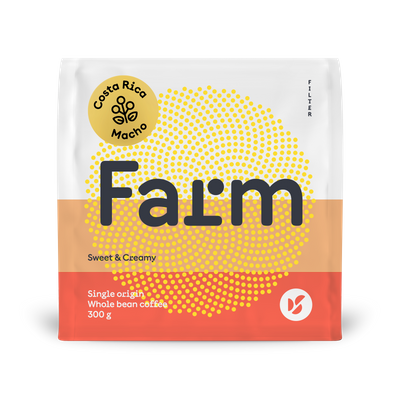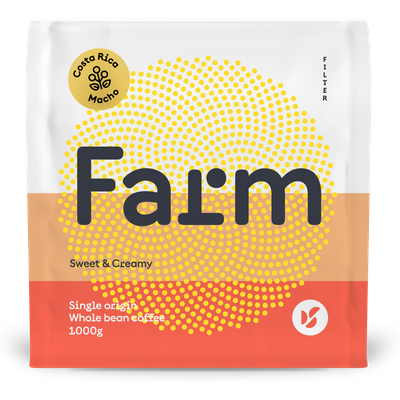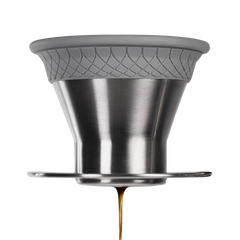Flavour
Sweet and dense notes of cocoa nibs and dried pineapple with a slightly funky aftertaste. Creamy body, medium acidity.
Origin
Costa Rica, Macho farm, Santa Rosa 1800 microbeneficio - a family coffee business from the Tarrazu region.
Learn more about the farm
Learn more about the farm
Processing & Variety
Bourbon variety - red honey method
Brewing tips
Coffee dose: 20 g, temperature: 94 °C, water weight: 330 g and extraction time: approx. 4 min.
We recommend letting the coffee rest, use bottled water and quality burr grinder.
How to brew coffee at home
We recommend letting the coffee rest, use bottled water and quality burr grinder.
How to brew coffee at home




